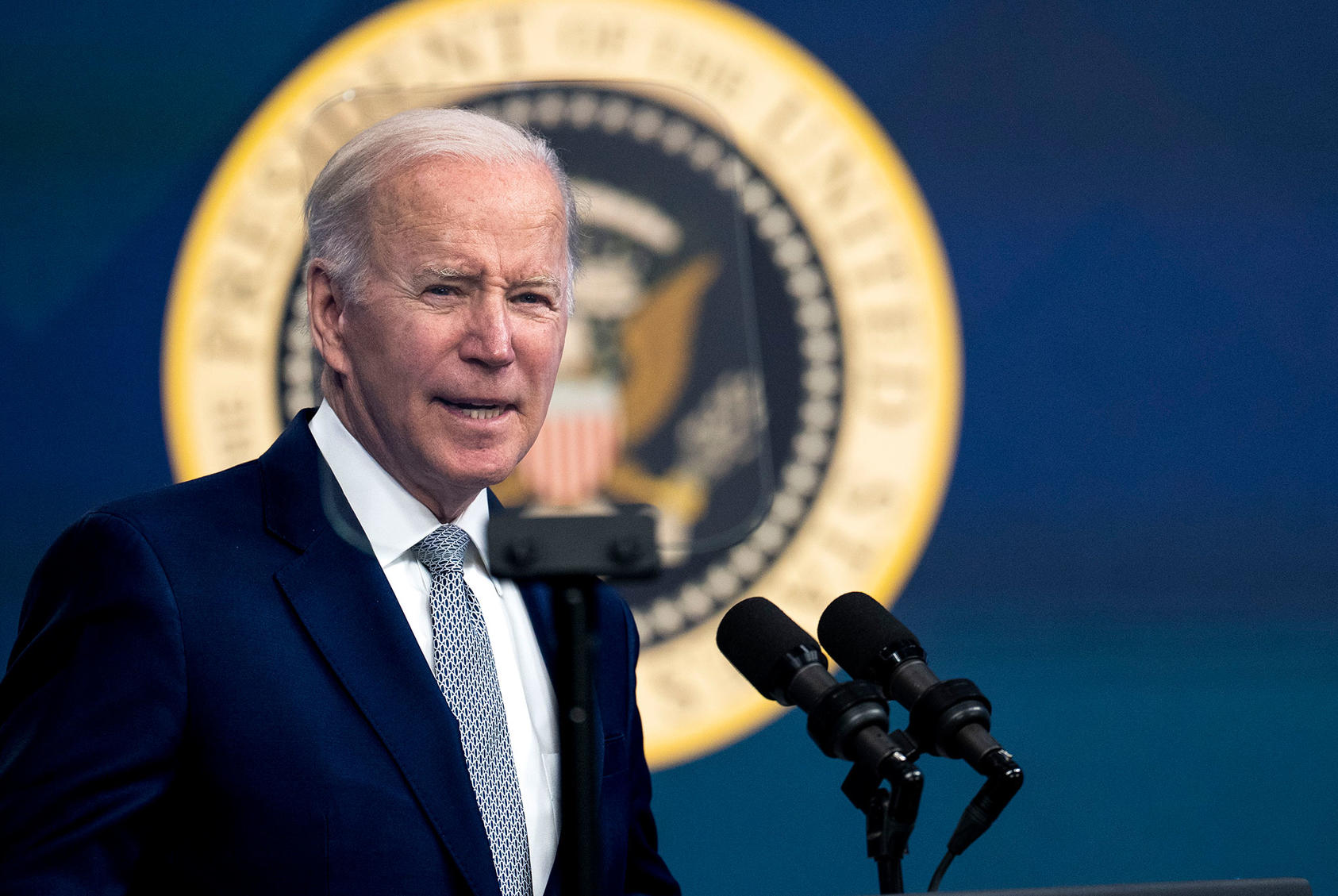The United States Speaks Clearly on Russia’s Ukraine War
Seeking peace for Ukraine and a more stable world means sustaining that message globally.
President Biden’s essay on the Ukraine war in Tuesday’s New York Times has vitally clarified America’s interests and goals following weeks of public debate weighted with uncertainty and concern over U.S. intentions and methods in that conflict. It offers a straightforward, positive approach—one that the world’s democracies should sustain—for confronting Russia’s assault against not only Ukraine, but global peace, stability and the rule of law.

A Clear, Positive Goal
“America’s goal is straightforward,” Biden wrote in the essay. “We want to see a democratic, independent, sovereign and prosperous Ukraine with the means to deter and defend itself against further aggression.”
That succinct, positive formulation of the U.S. objective contrasts with negative goals focused on Russia, such as weakening its geostrategic position or power. It forms a clear message, pro-Ukraine and pro-freedom rather than anti-Russia, that is vital to strengthen the necessary alliances against the Kremlin’s brutal aggression. It helps strengthen the U.S. partnership with Europe. Also, as USIP experts have noted, it’s an essential first step to building more support among nations in Africa, Asia and Latin America that have hesitated to fully oppose Russia’s effort to turn back the 75-year struggle to build an international rules-based order.
It seems no accident that Biden’s essay appeared in the Times, for it responds directly to the newspaper’s May 19 editorial seeking greater clarity on U.S. policy. That editorial was part of a broader questioning in May, among many commentators and scholars, about whether the battlefield surprises of the war’s first three months were leading to what the Times editorial called “U.S. aims and strategy in this war [that] have become harder to discern.”
“I want to be clear about the aims of the United States,” Biden wrote on Tuesday, and he was. It is the positive goals he emphasized—a restoration of Ukraine’s independence and ability to define its future, that will advance the vital U.S. and allied interests in the protection of democracy, sovereignty and rule of law.
Biden’s word choices, describing the “democratic, independent, sovereign and prosperous” Ukraine that America supports, carry real meaning. A democratic Ukraine is one that will continue its tradition, in 30 years of independence, of freely elected governments. It will continue to respond to Ukrainians’ persistent demands, in the face of Russian resistance and corruption, for more transparent governance. An independent and sovereign Ukraine is one that preserves its right to choose its future course, including potential membership in the European Union or NATO. A prosperous Ukraine is one that is free of Russian strangleholds on its economy, which the Kremlin is trying to achieve by seizing Ukraine’s remaining coastline, notably the port of Odesa.
The Path to a Negotiated Peace
Biden emphasized that he “will not pressure Ukraine—in private or in public—to make any territorial concessions” as part of any eventual peace process with Russia. Rather, he said, U.S. military aid is meant to help Ukrainians defend themselves well enough to “be in the strongest possible position at the negotiating table.”
This approach is in contrast to suggestions, including by former Secretary of State Henry Kissinger last week, that Ukraine cede to Russia the Crimean Peninsula and portions of Donbas that Russia seized in 2014. Zelenskyy sharply rejected the notion as redolent of the 1938 Munich Agreement in which European governments forced Czechoslovakia to cede its Sudetenland region to Nazi Germany.
U.S. as well as international policymakers should note the consistent evidence that Zelenskyy’s determination to sustain Ukraine’s fight accurately reflects Ukrainians’ attitudes. In stark contrast to Putin’s demonstrated personal isolation (illustrated graphically by his meetings with rare formal visitors across an absurdly long table), Zelenskyy seeks out steady contact with Ukraine’s citizenry. Ukraine’s independent polling organization, the Rating group, is sustaining wartime monitoring of public opinion and found this month that 94 percent of Ukrainians approve of Zelenskyy’s performance since the war began.
As Biden expressed the U.S. goal of a “Ukraine with the means to deter and defend itself against further aggression,” he also signaled a method for achieving it: supplying Ukraine with highly capable defensive weapons. His article announced that the United States will send Ukraine advanced, long-range rocket systems that have recently become more vital as the war has shifted to the wide, open steppe of southeastern Ukraine. The United States and its allies already have delivered 108 howitzers with a potential range up to 25 miles, and Ukraine so far has deployed 85 of them to front lines, a U.S. defense official said last week. The rocket system that Biden mentioned in his article will carry ammunition capable of a 50-mile range.
Those U.S. measures are reinforced by the European Union’s decision Tuesday to ban 90 percent of Russian oil exports to Europe by the end of the year—and by Germany’s announcement that it will send advanced, longer-range anti-aircraft missiles to Ukraine.
The first step to any eventual peace process that can protect the basic rights of nations to freedom and democracy is a global rejection of Russia’s unprovoked assault and support for its victims’ self-defense. As President Biden wrote Tuesday, the savagery and criminality of Russia’s attack makes American and international support for Ukraine “a profound moral issue,” not only “the right thing to do” but also “in our vital national interests.” Sustaining that clear message for Americans, Ukrainians, other allies—and indeed, for Russians—is a step not only toward restoring a just peace in brutalized Ukraine, but in preserving hope for an end to such wars worldwide.



